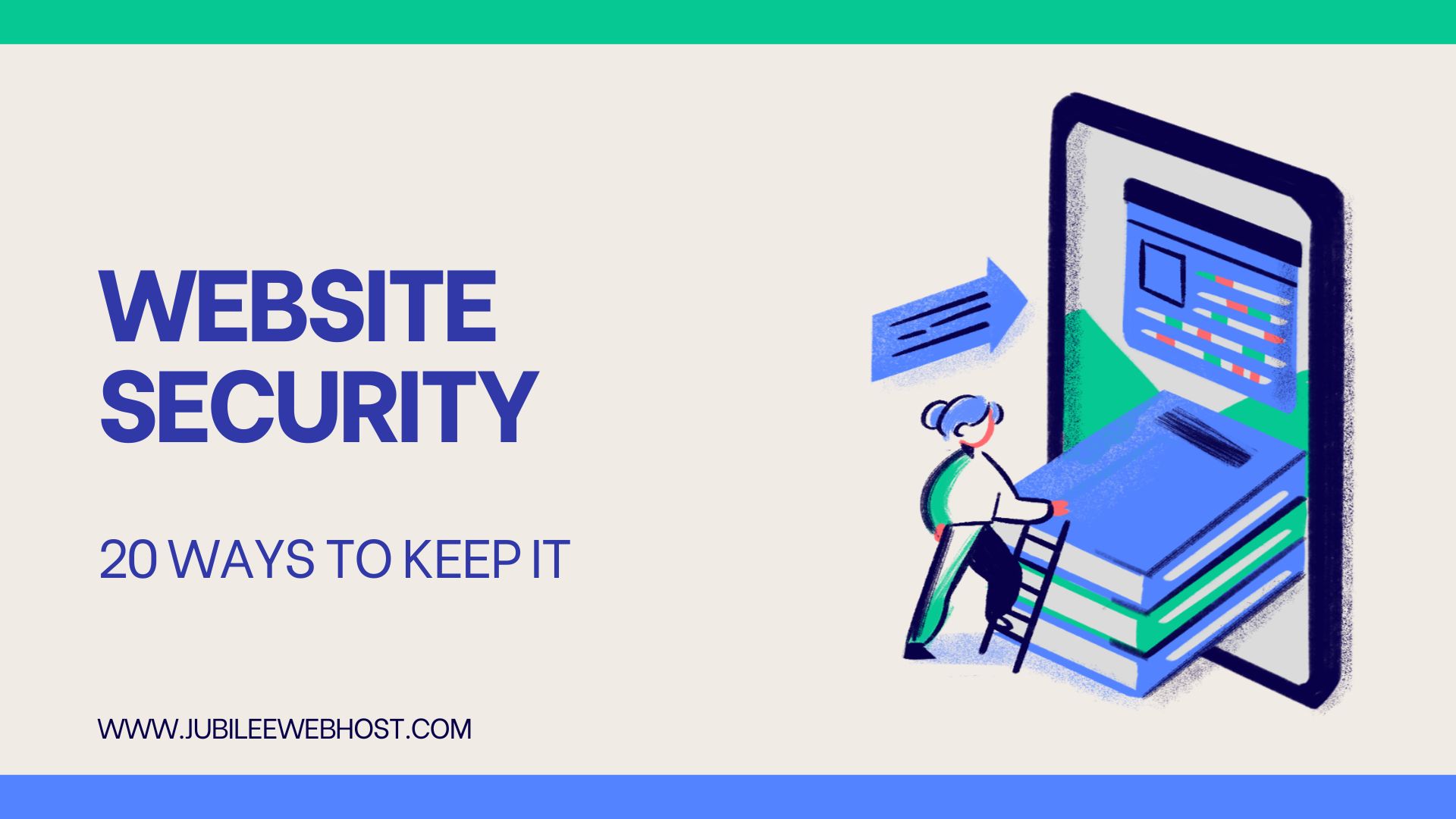
Website Security: 20 Crucial Tips to Secure Your Website and Hosting Account
In an era where online threats are ever-evolving, safeguarding your website and hosting account is paramount. In this article, we explore 20 essential tips and practices for shielding your online presence from potential security threats.
The 20 Website Security Tips
Here are the 20 essential practices, each explained to fortify your online presence and protect against potential security threats.
Update Regularly
Keep your website software, plugins, and content management system up to date. Regular updates often include security patches that address vulnerabilities.
Strong Passwords
Use complex passwords for both your website and hosting account. Include a mix of uppercase and lowercase letters, numbers, and symbols. Avoid easily guessable information like birthdays or common words.
Regular Password Updates
In addition to using strong passwords, consider updating them regularly. A dynamic password policy adds an extra layer of defence against unauthorized access.
Two-Factor Authentication (2FA)
Enable 2FA wherever possible. This adds an extra layer of security by requiring a second form of verification, typically a code sent to your mobile device. Consider using your mobile phone number, email address or a 2FA app like Duo or Google Authenticator to add an extra layer of security to your website and hosting account. If you are hosting with Jubilee Web Host, you can easily enable 2FA within your cPanel account.
Secure Hosting Provider
Choose a reputable hosting provider that prioritizes security. Research and opt for providers that offer encryption, regular backups, and robust security measures.
At Jubilee Web Host, we offer both free and premium SSL certificates for your website encryption. In addition, we employ JetBackup to perform daily, bi-weekly, weekly and monthly backups for all active web hosting accounts. Not only only that! We employ Imunify360 to enhance the security of your hosting account.
Regular Backups
Perform regular backups of your website data. This ensures that in case of a security breach or data loss, you can quickly restore your site to a previous, secure state. Make use of the free backup tools within your hosting control panel to backup and restore your hosting account. If you are using content management systems like WordPress, consider backup plugins like Updraft to automate the backup of your website. You can even take your backups to the next level by signing up for our premium backup solution, CodeGuard.
SSL Encryption
Implement Secure Socket Layer (SSL) encryption to protect data transmitted between your website and users. This not only enhances security but also boosts your site’s credibility.
Leverage our free SSL Certificate which you can easily install within your cPanel by simply running AutoSSL. This will give your website basic encryption. Better still, you can sign up for any of our premium SSL certificates for better security. These offer very strong encryption while also boosting the overall image and credibility of your website and organization.
Monitor User Access
Limit access permissions to essential personnel only. Regularly review and update access rights to ensure that former employees or unnecessary accounts don’t pose a threat.
Security Audits
Conduct periodic security audits to identify potential vulnerabilities. This can include scanning for malware, checking for outdated software, and ensuring your security measures are current.
Firewalls
Implement firewalls at both the server and application levels. Firewalls filter incoming and outgoing traffic, acting as a barrier between your website and potential threats.
Educate Your Team
Human error is a common source of security breaches. Educate your team on security best practices, such as recognizing phishing attempts and the importance of safeguarding login credentials.
Keep Login Credentials Secure
Safeguard your login credentials with utmost care. Avoid sharing them unnecessarily and ensure that sensitive information is not stored in easily accessible locations.
Implement reCAPTCHA Logic
Secure all login forms with reCAPTCHA logic. This helps prevent automated bots from attempting to gain unauthorized access, enhancing your site’s overall security.
Restrict File Types on Uploads
Apply restrictions on file types allowed in upload fields. This prevents malicious users from uploading harmful files to your server, mitigating potential security risks.
CMS Security Plugin
If you’re using a Content Management System (CMS), employ a reputable security plugin. These plugins often provide additional layers of protection and can assist in monitoring and addressing potential vulnerabilities.
Premium Security Solutions
For non-CMS websites, consider premium security solutions like SiteLock. These services offer comprehensive security features, including malware scanning, vulnerability patching, and firewall protection.
Regular File Scans
Frequently scan your website files to ensure that nothing has been added or removed without your knowledge. Early detection of unauthorized changes can prevent potential security breaches.
User Role Management
Define and assign specific roles to users with varying levels of access. Limit privileges to only what is necessary for each role, reducing the risk associated with unauthorized access or unintentional actions.
Error Handling
Implement proper error handling to obscure detailed error messages from users. Detailed error messages may inadvertently reveal sensitive information about your website’s structure, making it easier for attackers to exploit vulnerabilities.
Monitor Website Traffic
Regularly monitor your website traffic for unusual patterns or suspicious activities. Utilize web analytics tools and security monitoring services to identify and respond promptly to any irregularities, potentially indicative of a security threat.
Conclusion
By incorporating these 20 practices into your web management routine, you can significantly reduce the risk of security breaches and keep your website and hosting account safe and secure. Remember, proactive measures today can save you from potential headaches tomorrow.
